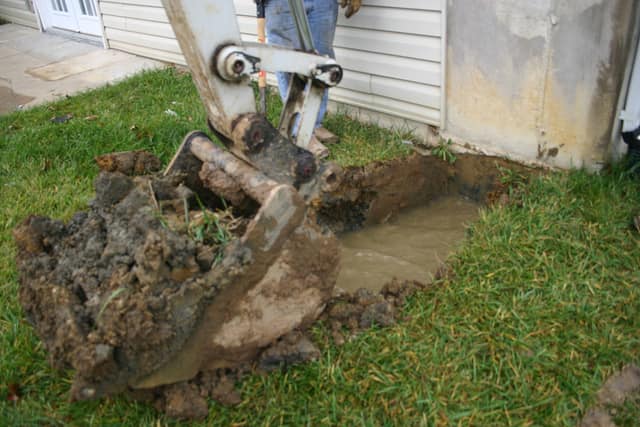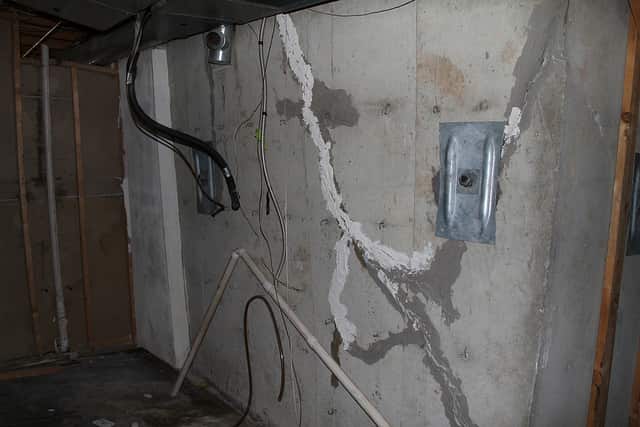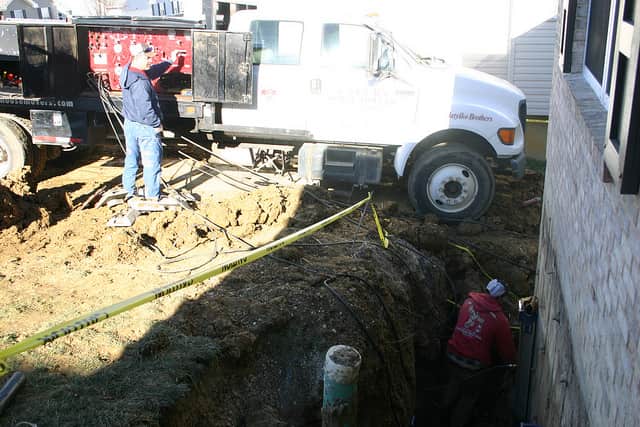


Foundation Repair Explained
Foundation Repair covers multiple areas such as:
- Pilings on gulf homes suffer erosion from constant wet and dry conditions.
- Pier and beam houses suffer from shifting soil causing cracks in walls and ceilings.
- Home leveling issues result from both of these conditions.
- Water retention trapped by clay erodes slab foundations and causes sinking.
- Basement cracks and leaking in northern regions require waterproofing and support.
Texas foundation repair problems are very common, especially in the southeastern part of the state. The Houston area from Houston and Sugarland, residential areas close to a bayou like Meyerland, and all areas down to Galveston are highly susceptible to extreme flooding. Elevating your house is imperative to save you not only on insurance, but from drastic flood damage.
Foundation repair, costs per pier and beam for house levelling, or replacement will average between $700 to $1,200. This is depending on the diameter per pier, the depth needed, and quantity of piers needed. It takes on average between 2 to 5 days for a foundation to be repaired and in most cases you never need to leave your home.
Foundation Soil Condition
A poor foundation that has settled or failed will dip or droop causing it to be unlevel. Poor drainage is the leading cause of settling, sitting water, expansive soil which is a high plastic, {lot of clay instead of dirt} causing water to run off or pool instead of absorbing the water.
We will excavate and shore the foundation and then can begin leveling. the cracks in the house can be either raised back to “zero”, or held in place to the current position if you have already spent the money to readjust the cabinets and repaired the walls, bricks, etc.
The high amount of ‘plastic soil‘ in this region is the leading cause of foundation issues, of course requiring foundation repair. When the water hits this clay, it runs off quickly filling the bayous or “ponds” because it cannot absorb deeper into the ground. Underground walls and foundations that have clay packed against it is definitely a bad thing. It will expand enough to push in and literally break the wall. This was actually a common method used by contractors thinking the clay would “protect” the concrete by keeping water from resting against it. The opposite is actually true. The water would also get between the clay and concrete and the only direction it would have to permeate would be the concrete increasing decay. The ground acts like an accordion that expands and contracts, weakening the slab or piers causing them to crack, decay, or completely fail such as disintegration or breaking.
At its simplest, hydrostatic pressure is the pressure created by standing or resting (“static”) water (“hydro”). The first image is an example of this, the second is a basement wall showing the damage the pressure can cause. The same thing happens to your monolithic slab foundation. As concrete dries, water vapor from the original concrete mixture exits the slab, creating small capillary networks. These pathways remain open until properly sealed, and can be the path of least resistance when water pressure builds up against a concrete contact point. As water permeates, it weakens the bond and the pressure creates cracks. Also, as the ground gives way and foundation slips, it will cause cracks in your ceiling and walls. Hydrostatic pressure is a natural force that can move rocks, buckle walls, and cause havoc with your concrete, but it does not explain every instance of water intrusion in concrete. Don’t let your foundation repair needs be expensive, call the Experts today.
We can repair your foundation properly and seal the exterior to stop this and other problems. All homes repaired with our method have never had complaints or foundation issues since.
Common Home Leveling Questions
- Does my soil type matter?
- What are pilings?
- How much does it cost to lift my home?
- Will leveling fix the cracks in my walls?
- How is leveling different than lifting?
- What is your guarantee?
- Is it a transferable warranty?
Common Home Lifting Questions
- Does my soil type matter?
- What are pilings?
- How much does it cost to lift my home?
- Will leveling fix the cracks in my walls?
- How is leveling different than lifting?
- What is your guarantee?
- Is it a transferable warranty?
